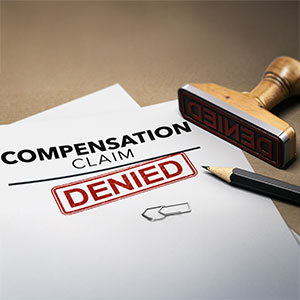Timing Of Suggestion Of Death And The Hearing To Substitute Parties
Personal InjuryIn the case of Stern v. Horwitz, Case Number 2D17-3044 (Fla. 2d DCA May 30, 2018), a suggestion of death was filed after one of the parties to the lawsuit died and a dismissal was reversed because the 90 day time period under Fla. R. Civ. P. 1.260(a) does not require that the trial judge have a hearing within 90 days.
A similar result was reached in Martinez v. Fernandez-Uriate, Case Number 3D17-150 (Fla. 3rd DCA June 6, 2018).
What Happens When A Party To A Lawsuit Dies While The Case Is Still Active In Florida?
When a party to a lawsuit in Florida dies, Rule 1.260(a) of the Florida Rules of Civil Procedure requires that the case should be dismissed unless a motion for substitution of parties is “made within 90 days after death is suggested” (this is normally called a “suggestion of death”). This rule only speaks to when a motion for substitution must be filed by and does not require that the judge conduct a hearing or make legal ruling before the expiration of 90 days. The rule is below:
RULE 1.260. SURVIVOR; SUBSTITUTION OF PARTIES
(a) Death.
(1) If a party dies and the claim is not thereby extinguished, the court may order substitution of the proper parties. The motion for substitution may be made by any party or by the successors or representatives of the deceased party and, together with the notice of hearing, shall be served on all parties as provided in rule 1.080 and upon persons not parties in the manner provided for the service of a summons. Unless the motion for substitution is made within 90 days after the death is suggested upon the record by service of a statement of the fact of the death in the manner provided for the service of the motion, the action shall be dismissed as to the deceased party.
Facts Of This Case
In this case, Stern sued Horwitz alleging that Horwitz negligently struck him with a golf cart causing injuries. Horwitz’s defense attorney filed a suggestion of death stating that his client had died. Within 90 days, Stern filed a motion for substitution of the parties but did not file a notice of hearing for 10 months. Horwitz’s attorney moved to dismiss the case.
The Second DCA disagreed with the dismissal of this case and clarified that Fla. Civ. P. 1.260(a) is “clear and unambiguous” that it does not require dismissal when a notice of hearing is not contemporaneously served with a motion for substitution of parties following the death of a party.
Legal Analysis
In the practice of personal injury law, it is not uncommon to have a party, particularly a defendant, die during the lawsuit. When that happens, your attorney should be careful about responding to a suggestion of death filed by the defense attorney, who is paid by the insurance company to win the case. The death of an insured is a potential opportunity to get the insurance company off the hook completely.
To avoid this result, a plaintiff’s attorney faced with a suggestion of death should file a motion to substitute the deceased defendant with an estate. You should know that you may not be able to get a hearing for several months, particularly in busy jurisdictions. This case should give a plaintiff’s attorney some relief when faced with the death of a defendant. It was clearly stated:
Dismissal is not warranted once two things occur:
- the party’s death is suggested upon the record, and
- the motion for substitution is filed or served with 90 days of the suggestion of death
Beyond that, a plaintiff’s attorney should request that the insurance company for the defendant open a probate estate so that the court can make the substitution at a hearing. You should be prepared for a cold response from the insurance company in an attempt to frustrate the plaintiff into a settlement.
If the case is worth its while, then a plaintiff can go to the substitution hearing and ask the judge to permit you to open the probate estate as a creditor of the estate. Should that happen, a plaintiff should be prepared to suggest a personal representative in lieu of a family member of the deceased and should be prepared for a vexatious objection from a family member of the deceased after you suggest a disinterested person (usually another attorney). This is common in cases where the deceased does not have any assets and the fight is entirely with the insurance company.
On the other hand, if the deceased has any assets of significance, you will probably see the family of the deceased come forward to open a probate because they want to protect the assets in the estate.
Bad Faith Remedy Could Fix This Problem
This is an area of law where the legal remedy is less than adequate. It is unfair to stick a plaintiff with the bill for opening a probate estate for the family of the deceased (and then take over the estate because they object to an “outsider” controlling the estate of their loved one). This is something than the insurance company for the deceased should be required to pay for as a “litigation expense.” However, as insurance companies are only motivated by profit, they stand to gain more when the entire claim is dismissed.
A potential fix for this issue is to consider the insurance company’s failure to open a probate estate for an insured who has died (and already a party to the lawsuit for which they are defending) bad faith.
Get Help With Your Personal Injury Case
Personal injury cases in Florida have no shortage of pitfalls for plaintiffs. If you have gotten hurt and you need the assistance of a personal injury attorney in Lakeland, FL to pursue the insurance company for you, please contact us today for a free consultation with an attorney.


